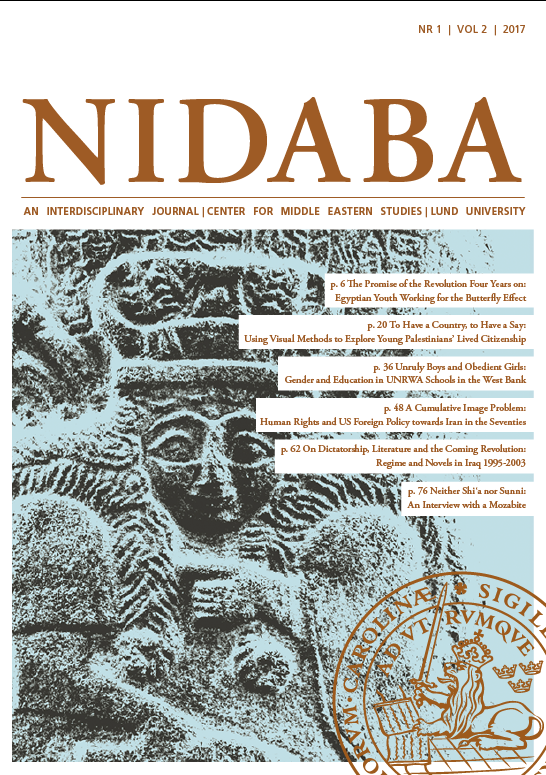Abstract
The last years of the Saddam regime in Iraq are often described as the disintegration of the very pow- erful state as the result of the cumulative impact of wars and sanctions. Yet in one eld, literature, the Saddam regime maintained a rmer grip during its last years. is article describes the regime’s politics with regard to literature and literary production, concentrating on the novel, in the period between 1995–2003. e article explains why the regime targeted the literary eld before its doom and why it focused on the novel. Examining the Iraqi regime and its “eccentricity” during this period illuminates the control of the totalitarian Ba’ath dictatorship, and sheds a new light on the belated emergence of literary reaction, silently hatching during that period, in the form of a new literary generation that would revolutionize Iraqi cultural life after 2003. is revolution is often called Deba‘athi cation and only its political and bureaucratic aspects are given attention. is article is, thus, about the cultural background of deba‘athi cation.
Authors retain copyright and grant the journal right of first publication with the work simultaneously licensed under a Creative Commons Attribution License that allows others to share the work with an acknowledgement of the work's authorship and initial publication in this journal.
Authors are able to enter into separate, additional contractual arrangements for the non-exclusive distribution of the journal's published version of the work (e.g., post it to an institutional repository or publish it in a book), with an acknowledgement of its initial publication in this journal.
Authors are permitted and encouraged to post their work online (e.g., in institutional repositories or on their website) prior to and during the submission process, as it can lead to productive exchanges, as well as earlier and greater citation of published work (See The Effect of Open Access).
The journal provides open access to all accepted manuscripts in hopes of facilitating an exchange of knowldge and informed discussion about the Middle East. Publishing with Nidaba, authors agree to the terms of the Creative Commons Attribution-NonCommercial-NoDerivatives 4.0 International License, which allows others to share the work with an acknowledgement of the work's authorship and initial publication in this journal. Authors retain the copyright to their manuscript and grant the journal the right of first publication.
The content of this journal is licensed under a Creative Commons Attribution-NonCommercial-NoDerivatives 4.0 International License.

